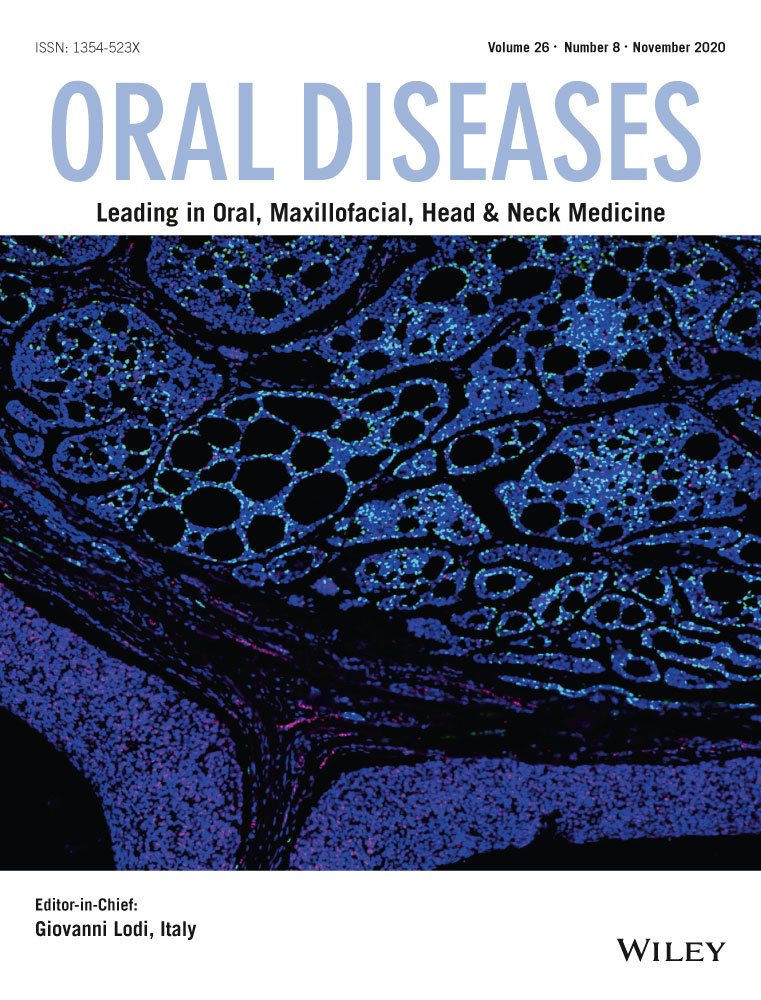The identification of autophagy-related genes in the prognosis of oral squamous cell carcinoma
Longbiao Zhu and Donglin Yan contributed equally to this work.
Abstract
Objectives
The aim of this study was to identify prognostic autophagy-related genes and assess the ability of these genes to predict clinical outcomes in oral squamous cell carcinoma (OSCC).
Subjects and methods
The details of the human autophagy-related genes were obtained from the Human Autophagy Database. The Cancer Genome Atlas database was used to obtain the gene expression profiles and clinical data of patients. Prediction of biological functions of differentially expressed genes was performed using Gene Ontology and Kyoto Encyclopedia of Genes and Genomes (KEGG) pathway enrichment analyses. Prognosis-related genes were identified by Cox regression analysis, and the coefficient was applied to construct a prognostic risk score model. The median of the risk score was applied to distinguish between high- and low-risk groups. The Gene Expression Omnibus database, qRT-PCR and immunohistochemistry were used to validate the expression of key genes.
Results
KEGG analyses revealed that differentially expressed genes were mainly enriched in autophagy-related pathways and virus infection. BAK1, BID, NKX2-3 and SPHK1 were identified. The risk score model showed that the high-risk score had poorer overall survival (Kaplan-Meier analysis, p = 1.79 × 10–7). SPHK1 was upregulated in OSCC tissues and cells, and NXK2-3 was downregulated.
Conclusions
Autophagy-related gene expression profiles may be a potential biomarker for OSCC prognosis.
CONFLICT OF INTEREST
The authors declare that they have no conflicts of interest.




